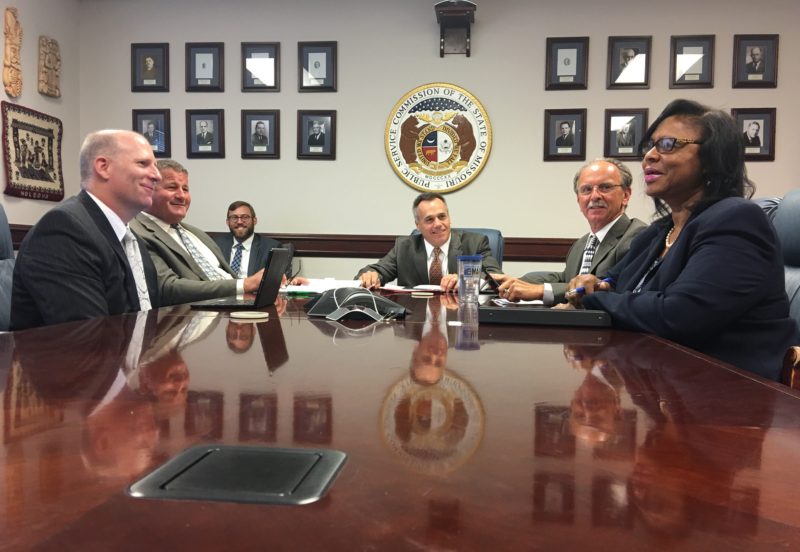JEFFERSON CITY, Mo. – Perhaps the best way to sum up the latest agenda meeting of the Missouri Public Service Commission is to define the word “quantifiable.”
During Wednesday’s weekly agenda meeting, the commission dealt with three case discussions concerning special contemporary issues for KCP&L G-MO, KCP&L, and Empire in their IRP filings.
“The Division of Energy requests to identify and evaluate the quantifiable non-energy benefits. Empire’s response is different than the others, I believe. Is there a reason why?” Commissioner Stephen Still asked.
The difference, it turns out, could be attributed to a number of factors, but most likely because Empire was filing its 2018 IRP Annual Update Report, while the other two filings were triennial IRP filings.
“The commission in the past has indicated that they expect more from the triennial filings,” Judge Morris Woodruff said, also noting that different people working on it with different views could allow for some differences.
“Does the word ‘quantifiable’ have significance?” Chairman Daniel Hall asked.
After some discussion, it was said that it does have a significance when talking about rulemaking, as it’s a conversation about energy efficiency, how it affects collect-ables, and how people are affected in a quantifiable way that could be avoided. The non-energy benefits could include health as a result of as lower emissions.
The commission also noted, that as Empire does not have an MEEIA program, the filings could be even more important for the company to evaluate at this point.
It was suggested that each utility quantify and estimate the non-energy benefits, which would be another consideration that utilities could use in their process of establishing a long-term plan. It’s not, however, required at this time. The commission said they’d like to see that, if the cost to do those studies or get the data came at a minimal cost.
“We don’t want you to go and conduct a $500,000 study to respond, but if you have the information in-house and can put it together, we would like to see it. That’s the kind of language we should use here. It’s relevant information, but we make it clear that we don’t want them to spend a lot of money to gather,” Chairman Hall said.
The commission praised the staff and the Office of Public Counsel for raising a number of issues, as well as the companies for working with them. Chairman Hall noted a number of pressing issues at this time and said he was excited to see the companies’ responses.
The PSC also approved two orders on the day: the first was a joint stipulation between Spire and the Missouri School Board Association concerning the school transportation program. Chairman Hall called it a “reasonable compromise” between the two parties, and it was approved 5-0.
The commission also approved the changes to Ameren Missouri’s purchased gas adjustment (PGA) tariff, agreeing with staff’s position that the rate change is approved, subject to a refund, pending the commission’s final decision on the ACA case.
The commission also approved a memorandum regarding amending the rules to fall in line with the 2017 National Electric Safety code, which will be sent to the Governor’s Office for review before returning and being sent to JCAR.
The final item of the day concerned discussion about the annual Federal USF High-Cost Support Certification, which companies must be certified for to receive high-cost support, showing that the support will be used as it is specifically intended for.
Staff said that in their review, no issues surfaced. Missouri gets roughly $164 million under federal USF, which includes broadband. Staff estimated that about $100 million of that goes to broadband. Currently, three companies have authority to provide under that guise: Windstream Missouri, Fairpoint Communications, and Spectra (dba Centurylink).
The next meeting of the PSC will take place on Nov. 1 at 1 p.m.
Benjamin Peters was a reporter for The Missouri Times and Missouri Times Magazine and also produced the #MoLeg Podcast. He joined The Missouri Times in 2016 after working as a sports editor and TV news producer in mid-Missouri. Benjamin is a graduate of Missouri State University in Springfield.











